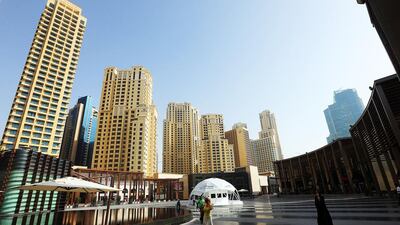It seems to have become something of a convention within the British press to feature rather negative articles about the Gulf states. A subtle variation on this theme is to focus on the behaviour of Gulf nationals abroad – the output is similarly negative. If you see the word Dubai in a British tabloid headline, then tales of glitter and excess, exploitation or oppression will almost certainly follow. Such articles have become frequent enough to earn their own journalistic category. Gulf-based writers refer to the genre as Dubai-bashing.
Dubai-bashing tends to be overly focused on “lavish lifestyles” and “petrodollar-fuelled excesses”. This fixation on wealth and glitter is then typically juxtaposed with tales of oppression or the maltreatment of workers. Traditionally, the favoured target for such outpourings is Dubai, which has almost become a metonym (catch-all term) for modern wealthy Arabian Gulf cities.
The typical Dubai-basher will start by suggesting things are too big, vulgar, or ostentatious. They will quickly move to the incorrect notion that expatriate workers have zero-rights. Finally, there will be lots and lots of talk about lots and lots of wealth.
Of course the Gulf countries have their imperfections; which part of the world doesn’t? Of course Dubai is not dutopia. However, my inner psychoanalyst has to speculate on what lies behind these often disproportionately negative and rather repetitive appraisals of the Gulf? Is it a sincere commitment to universal workers’ rights, a puritanical dislike of opulence, or might it also have something to do with the human capacity for envy?
There has been a pretty rich history of envy directed towards the Arabian peninsula over the millennia (Alexander planned to invade but never got around to it). The Greco-Roman writers, often relying on dubious secondary sources, made ancient Arabia the subject of much exaggeration. Sadly, this is often also the case with contemporary writers when discussing the Gulf.
The Greco-Roman writers referred to parts of Arabia as “Arabia Felix”, meaning happy or blessed. Agatharchides, a Greek historian, writing in the second century BC, describes Arabia Felix as a land of luxury, inexhaustible goldmines and gem-studded palaces. He then goes on to describe the indigenous inhabitants as decadent, lazy and steeped in immorality. With a similarly negative and somewhat envious tone, Pliny the Younger, a prolific letter writer and Roman historian, complains that it is “Roman sesterces” (coins) that is making these inhabitants of Arabia Felix the richest in the world.
Back then the prized commodity sought by the Romans was frankincense and Arabia Felix was Yemen. Today, the prized resource is oil and it’s the Gulf countries that could be considered the modern Arabia Felix. There is no doubt that in the popular imagination the Gulf has been caricatured as the land of bling. Grammy award- winning hip-hop artist, Common, refers to Dubai as an exemplar of ultimate wealth, singing:” ... we’re on our paper [money] until we get it like Dubai”.
Another US recording artist Busta Rhymes ultimately apologised for a song he recorded called Arab Money. Both the video to Arab Money and the song’s lyrics promote the idea that the Gulf is all about blissed-out hedonistic lifestyles. It repetitively proclaims “We getting Arab money” before going on to make an explicit reference to Dubai: “Chest cold, diamonds make [me] wanna cough. In Dubai 20 million on a villa loft”.
Having lived in Abu Dhabi for nearly a decade, I see straight through the one-dimensional, envy-tinged characterisations of the UAE. The lasting damage of Dubai-bashing though, as is true of all stereotyping, is that it leads to the proliferation of prejudice and bias. The tragedy of this is that many people will never truly experience the Gulf or its inhabitants other than through this reality.
Dr Justin Thomas is an associate professor of psychology at Zayed University
On Twitter: @DrJustinThomas


